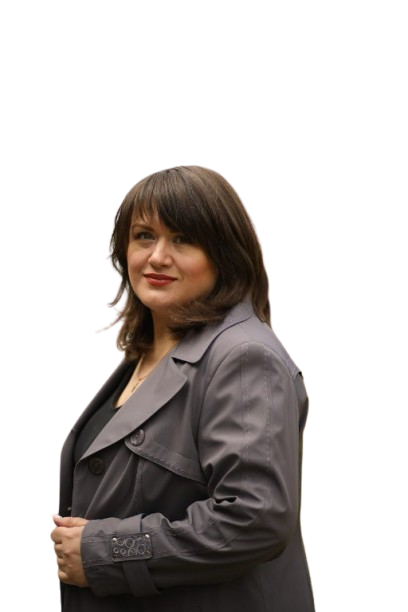Iryna Lukecha is an experienced psychotherapist, psychologist, and trainer with a strong background in international humanitarian work, trauma recovery, and psychosocial support. Since 2022, she has actively contributed to global mental health initiatives through her work with International Medical Relief (USA), where she currently serves as a Team Leader. Iryna also collaborates with refugee support foundations in Poland, working with children, families, and individuals with special needs, including autism and ADHD. Her diverse international training, including certification in Breath-Body-Mind Therapy (USA) and Psychosomatics (Ukraine), underpins her holistic and client-centered approach. She has also coordinated cross-border humanitarian projects supported by the Danish Government and Red Cross.
Psychological Support After Divorce: How Therapy Helps Navigate Loss, Preserve Dignity, and Build a New Life
Divorce is not merely the end of a relationship; it's a profound emotional and psychological process that affects all aspects of a person's life: emotions, self-esteem, family roles, social connections, and life plans. It can be especially painful when the separation is unexpected or accompanied by feelings of betrayal, misunderstanding, or devaluation. In such moments, it's crucial not to isolate oneself but to seek professional help.
Psychologist Iryna Lukiecha works with clients—both women and men—who are experiencing the end of long-term relationships, changes in family structure, and adaptation to a new reality. Her approach combines deep therapeutic work, coaching support, and the development of resilience.
Context of the Situation
A client approached Iryna following an unexpected end to a marriage that lasted over 10 years. Her husband moved abroad and decided to divorce without prior notice. The woman was left with two children, unsure of how to explain the situation to relatives or how to proceed with her life. She lost her sense of stability and trust in people, feeling "broken." She experienced insomnia, anxiety, tearfulness, apathy, and self-esteem issues.
Stages of Psychotherapeutic Work
1. Acceptance of Separation: Initial Support
- Allowing oneself to experience emotions: anger, tears, fear, sadness
- Psychoeducation on the stages of grief and loss
- Safe discussion of painful moments and memories
- Body self-regulation techniques—breathing, grounding
2. Restoration of Identity and Self-Esteem
- Working on beliefs: "I'm not enough," "I'm unlovable," "I'm unwanted"
- Analyzing the inner critic and transforming self-devaluation
- Returning to personal interests, hobbies, and activities
- Gratitude and self-worth journaling
3. Rebuilding Life and Setting New Goals
- Creating a new life structure: "me and the children," "me and work," "me and the future"
- Developing a clear vision: how I see myself in one, three, five years
- Setting new personal, financial, and social goals
- Language and professional adaptation, especially if the client is abroad
Common Challenges
- Attempts to "prove" something to the ex-partner after divorce
- Worrying about others' opinions: "what will people say"
- Constantly replaying stressful episodes in one's mind
- Fixation on the past instead of moving forward
Results of the Work
- Stabilization of emotional state, improved sleep and appetite
- Increased confidence and a sense of "I can"
- Improved relationships with children—more presence and calmness
- Emergence of new plans, interests, and zest for life
The client's feedback

Frequently Asked Questions
Question
What if my ex-partner continues to manipulate me?
Answer
In therapy, we learn to set boundaries, reduce dependence on others' actions, and focus on personal stability.
Question
I'm ashamed to seek help from a psychologist—is that normal?
Answer
Absolutely. It's a common feeling. However, therapy is not a sign of weakness but a testament to self-care.
Question
How long does therapy after divorce last?
Answer
It depends on the individual, the duration of the marriage, and the circumstances of the separation. A minimum of 2–3 months, with deeper work extending from 6 months to a year.
Divorce is not the end of life. With proper support, it can become the beginning of a new, more conscious and fulfilling chapter. Iryna Lukiecha assists clients not just in coping with loss but in transforming it into a foundation for the future. A new life is possible—and it can be even better than before.

































